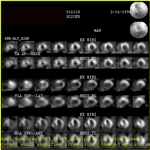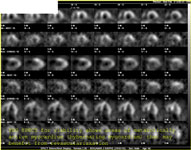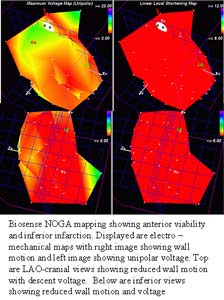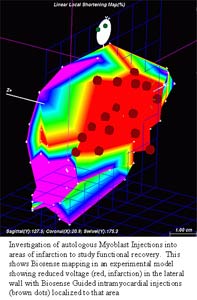Congestive Heart Failure
BIDMC/Harvard Medical School
|
|
Congestive Heart FailureBIDMC/Harvard Medical School |
|||||||||||||||||||||||||||||||||||||
Congestive heart failure (CHF) is a common clinical syndrome representing the end-stage of a number of different cardiac diseases. It is estimated that between three and four million persons carry the diagnosis of CHF in the United States and congestive heart failure carries a serious risk of mortality and morbidity once diagnosed. However, there are many treatment options for patients with congestive heart failure, standard or investigational. The most common etiology of congestive heart failure is ischemic heart disease (coronary artery disease), and often revascularization when indicated may restore some cardiac function. This is seen when the revascularized dysfunctional myocardium is viable but underperfused (hibernating myocardium). Other causes of CHF can also be treated, and there are many medical treatment strategies that slows the progression of CHF, including Angiotensin Converting Enzyme inhibitors, Angiotensin II blockers, Beta-adrenergic blockers,…


There are many tests that can be performed to determine the presence of viable but underperfused hybernating myocardium including nuclear perfusion and metabolism scans, Dobutamine Echocardiography, and Biosense NOGA mapping. In these patients with positive tests, revascularization may restore cardiac function


Finally, Researchers at BIDMC are investigating novel treatment startegies including myoblast transplantation, myotissue transplantation, and left ventricular assist devices